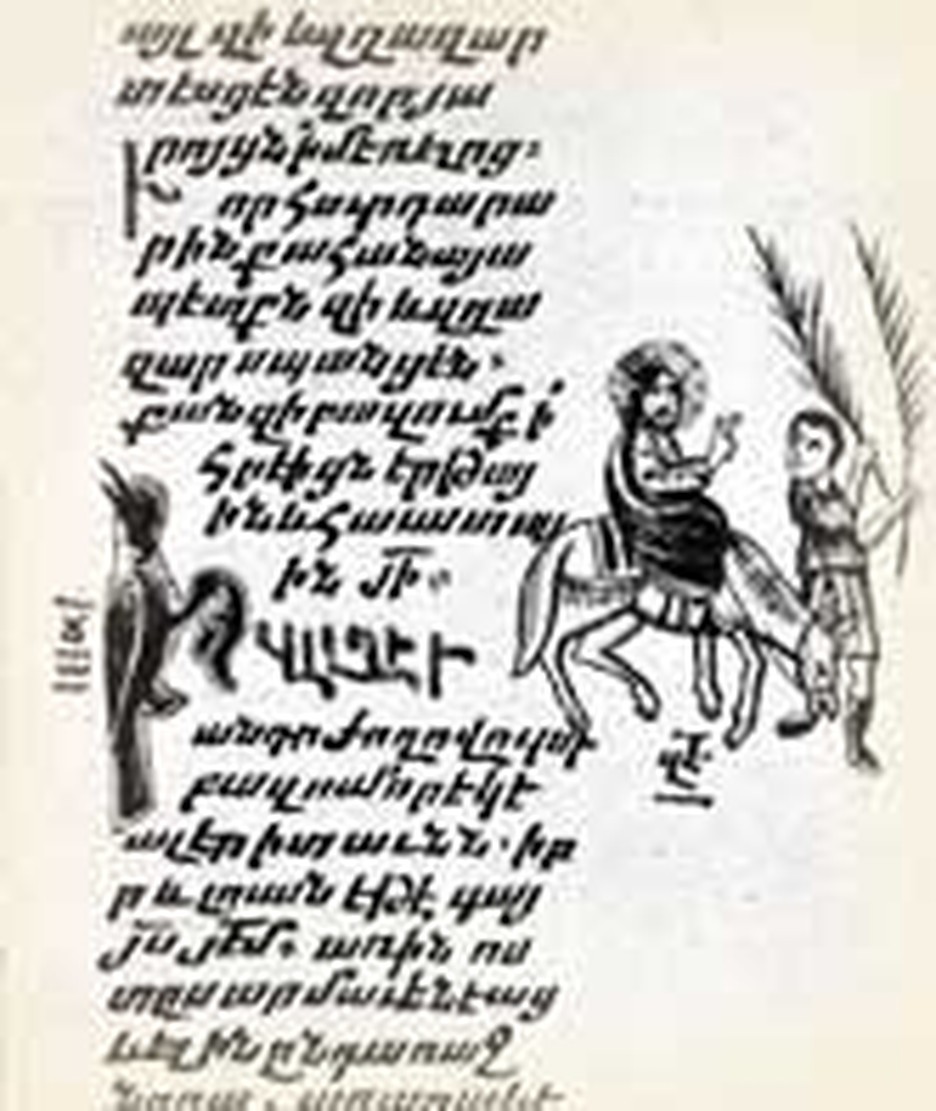
The monk Mesrob belongs on any list of the ten greatest men of Armenian history. A Catholic historian wrote, "To Mesrob we owe the preservation of the language and literature of Armenia; but for his work, the people would have been absorbed by the Persians and Syrians, and would have disappeared like so many nations of the East." But Mesrob's importance goes beyond that. Thanks to the alphabet that he invented and the schools that he founded to teach his people, old versions of the Bible and of other early Christian writings were preserved. These would have been lost to western Christians otherwise. Mesrob is remembered in church calendars on this day, February 19th.
Mesrob was born in Armenia around the year 361. Becoming a master of several languages, he was employed as a secretary to his king, translating his orders into Greek, Persian and Syriac so that as many people as possible could understand them, since Armenian was not yet a written language.
Evidently Mesrob felt something was lacking in his life. Although a successful civil servant, he wanted to work directly for God. He became a monk, took holy orders and withdrew to a monastery where he deliberately subjected himself to suffering in order to harden his body, firm up his mind, and deepen his spiritual determination. Then Mesrob went out to preach. Although he won many converts, he found great difficulty building them up, because there was no national literature. With financial backing from the king and phonetic help from others, Mesrob created an alphabet of thirty-six letters for his people. The Armenian tongue had complex sounds not found in the Greek, Syriac and Persian.
Armenia had been the world's first Christian nation, but it became a battleground between the clashing Roman and Persian empires. In Mesrob's own lifetime, these foreign powers split his country between them. Historians agree that Mesrob's invention of the alphabet saved Armenia and gave it a national spirit all its own. (A similar case in the West is that of Alfred the Great in England). The Bible was soon translated into Armenian and many other books written or translated using the new script. The result was a body of national literature that inspired this Christian people and held them together when outside forces threatened to destroy them. Mesrob, who lived on the Persian side of Armenia, got permission to preach and teach on the Roman side.
He worked among the Georgians, Albanians, and Aghouanghks, too, adapting his alphabet to their languages. He planned for the future, not only preaching the Gospel, but building schools and appointing men to continue his work after him. Like the Apostle Paul in Asia Minor, he later went back and visited the churches he founded to strengthen them in their faith.
When he died in 441, all recognized that a great man had passed from the face of the earth. His body was laid in the crypt of the church at Oshakan. A beautiful cathedral now marks the spot.
Bibliography:
- "Origins of the Armenian Alphabet." http://www.armenianheritage.com/lamesrob.htm
- Vaschalde, A. A. "Mesrob." The Catholic Encyclopedia. New York: Robert Appleton, 1914.
- Various other internet and encyclopedia articles.
Last updated June, 2007


